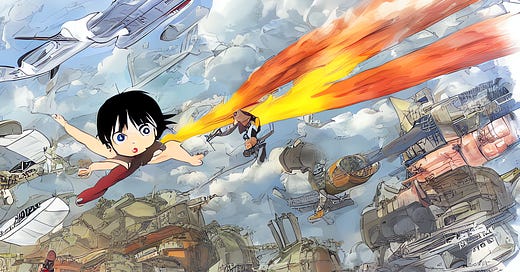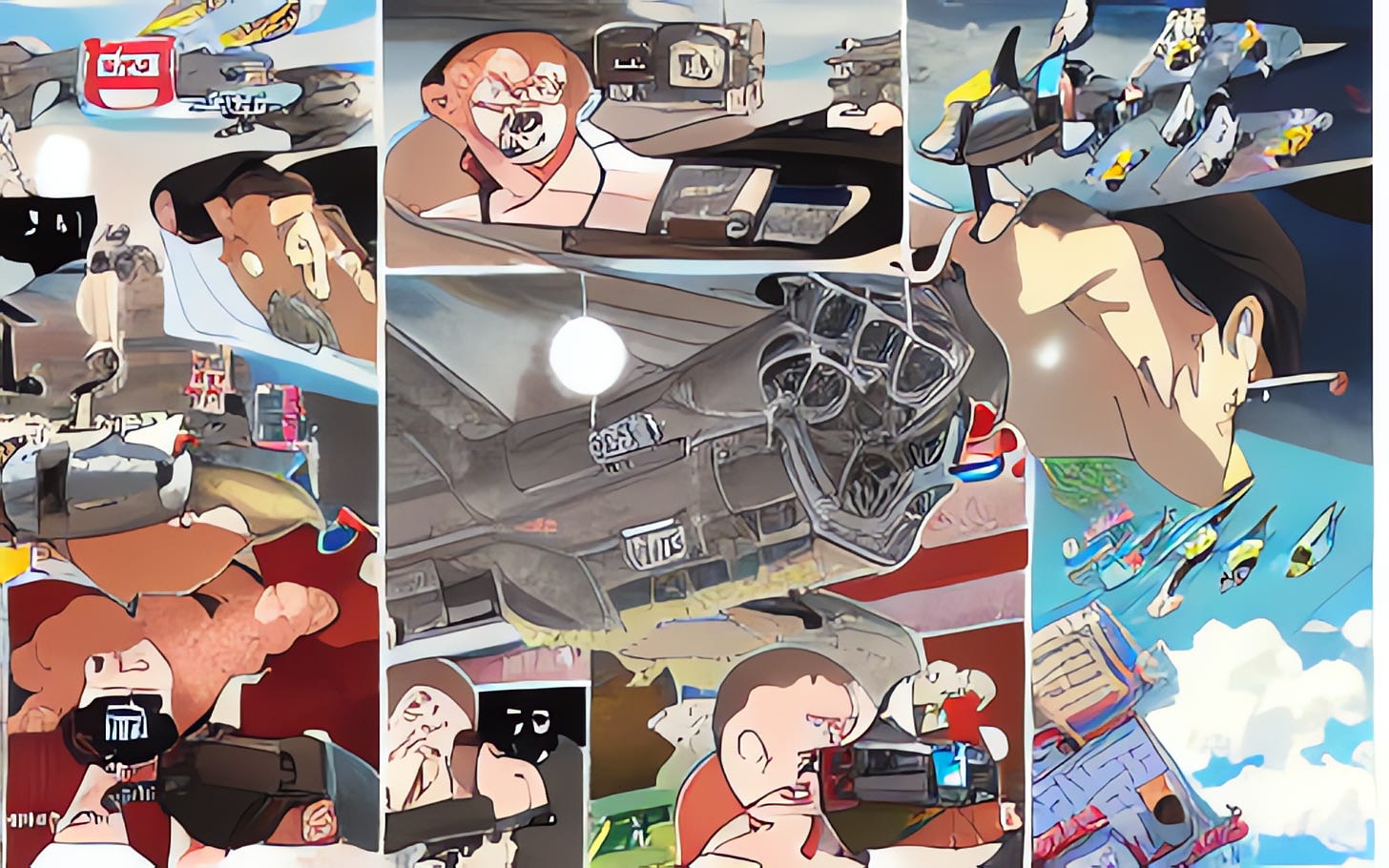Normalization: Three takes on the cold war
Table of Contents
The Cold War Analogy.
Why the cold war? Because it inaugurates the planetary era. Most of us learn about the cold war as conflict between two ideologies, but that leaves out the cold in the cold war. Why was it cold? Because the hot version would involve nuclear weapons and kill us all. Planetary survival was at stake throughout the cold war. Everyday life might remain the same, but catastrophe lurked around the corner. Today, catastrophe has taken a step or two into the courtyard and tomorrow it might well sit at the dining table.
I believe it's absolutely crucial to write a story that connects the cold war catastrophe to the climate catastrophe. The specific causes might be different, but we must step out of the frame that emphasizes nuclear weapons and fossil fuels as _sui generis_. For the cold war contains the clue to answering a question that baffles me: why is climate change so resistant to being solved by the post-WWII system? What will take to normalize climate change?
Be patient for both my puzzlement and my definition of 'solution' aren't standard.
Take 1: The First Planetary Crisis
This one is short-the planetary age started in 1945, not 1991, and the cold war was the first planetary crisis, not the current climate crisis. If you think about this for a moment you'll agree with me. When did we first develop the capacity to end human civilization and much of life on earth: 1945. When did we first see the development of entrenched interests that would rather see us all die than lose power/profit? 1945. Fine you might say, but the climate/ecological crisis is very different from the cold war, and the entrenched interests are very different and the solutions are TOTALLY different.
Let me try to convince you otherwise.
Take 2: Do We Need a New Cold War
Do we need a new cold war?
What??? Why?? Bear with me. Some people talk about needing a WWII-level mobilization to tackle climate change.
Wrong analogy. A better analogy: we need a new cold war to tackle climate change.
For example, I think we solved nuclear weapons. Not by getting rid of them, but by
Recognizing the seriousness of the threat.
Creating massive institutions for producing those weapons and detecting what the adversary was doing with theirs.
Creating chains of command and doctrines about the use of those weapons.
Preparing their populations for worst-case scenarios.
and so on.....
None of this was for the greater good or free of the capitalist desire for profit or the imperialist desire for power. The solution almost led to Armageddon during the Cuban Missile crisis. But it worked according to its own logic and its own needs.
I get it: a nuclear bomb kills hundreds of thousands in a flash--the threat is painfully visible. A nuclear bomb is an object backed by an hyperobject (The Manhattan Project was most certainly a hyperobject) unlike climate change, which is a hyperobject backed by billions of objects - all those cars lining up at the gas pump, for example. The mystery of climate change is in the aggregate, not the individual and we are generally bad at dealing with emergent properties & their consequences. In contrast, the nuclear bomb is magical, i.e., a mystery wrapped in an individual wrapper.
Back to the cold war: the solution "worked"- it normalized the nuclear age and made a response to it the central motivation of the main parties to the dispute and prompted everyone else to acquire the weapons for themselves. Nuclear war was the first serious threat to all human civilization in human history. And not just humans, but perhaps all of life. The cold war, for all its insanity, was a solution at the scale of the problem, even if it made the problem worse by doing what it did.
Why did nothing like that arise for climate change? Or perhaps we have just been a tad impatient. Will the new cold war between China & the US be the setting in which climate change is solved?
The tacit belief among everyone who cares about climate change is that it needs international cooperation at a massive scale. What if that belief is mistaken? What if it needs competitive geopolitics instead? Think about it: the years in which inequality decreased in the West were all years in which the Soviet Union offered a credible threat to the ‘free world.’ Why should climate change be different?
Take 3: Hyperideas
How has the earth been given to us? What enabled us to grasp the scale of ecological collapse, the sixth extinction?
Answer: the cold war.
It is only the systems of surveillance and control set up during the cold war that revealed the extent of the human impact on the planet. Without those satellite images (or more famously "Earth rise") and those ocean floor listening stations, the supercomputer simulations, we wouldn't know about whale songs, coral reef dissolution, or any of the planetary crises caused by fossil fuels. That system is a hyperidea, a knowledge system too big to grasp.
Only hyperideas can grasp hyperobjects!
You might argue with some legitimacy that climate change will affect our lives whether we detect it or not, whether we believe in it or not. All true, but that's not how climate change is given to us. The vast system of instrumentation, modeling, and simulation that turns climate change into a 'given' is cut from the same cloth as the systems that extract fossil fuels or evaluate emerging markets for profit. All of whom trace their origin to ideas, ideals, and institutions of the cold war. It was that period that made the concept of 'system' both important and practical. I have often heard it said:
We want systems change, not climate change!
But what is this system and how does it cause climate change and will prompt the next crisis if it solves climate change? How is solving for nuclear and solving for climate a deeply flawed premise at the heart of the system? We need to take a philosophical step backward and ask how the Earth is given to us by the system.










